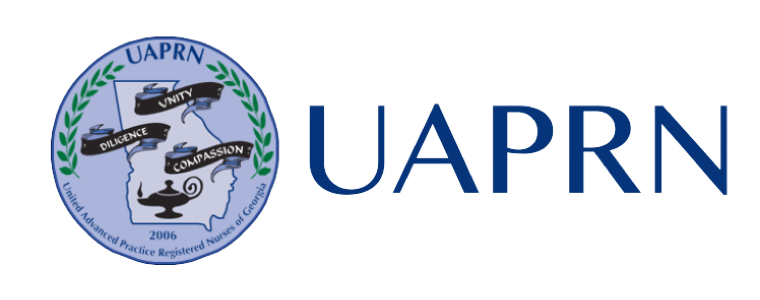Helpful Considerations when thinking about Peer Review
Posted about 10 years ago by James F. Lawrence
This announcement has 2 attachments:
Members,
Happy holidays to everyone!! It is rare that I solicit feedback on matters of research and/or scholarly writing from you all. In fact, this will be a first. To engage in a professional dialogue that hopefully will stimulate our members to critically think outside of their comfort box, I present this 2 page article for your review on the topic of peer review. It is taken from a recent publication of Journal of Nursing Scholarship. Most of you all know my biased opinion on the definition of an APRN to include being a clinical expert, but the expectations as well as the bar of truly executing the APRN role also now includes being a political advocate, researcher, teacher, mentor, leader, and yes, scholarly writer. These elements are what separate us from our undergraduate pinnings. They define the "advanced" in APRN!
I truly appreciate the bioethicists' philosophy that if the APRN is a published author, and has benefitted from peer review, that APRN has a professional as well as ethical obligation to review for others. In fact, Wendler and Miller (2014) further state that being part of any system- healthcare or other, that has brought the individual rewards or benefits- yet that individual chooses not to actively contributing through participation and involvement equates to the equivalent of "milking the system" and getting a "free ride" from the system that has brought one prosperity.
What are your thoughts on this matter? Should the current process of peer review for acceptance of one's scholarly writing be changed? Do you feel the process is too stringent and deters other APRNs from engaging in scholarly writing due to rigorous criteria? Would diluting the peer review process lead to a lower quality of writing from the APRN community? Should our professional journals have an open peer review process that is more transparent and have a quicker turnaround time in decision for acceptance? Should peer review for scholarly writing abandon its double-blind approach it has held on to for so many years and adopt a new approach which would allow the author to know the identity of the reviewer? Would knowing the reviewer of X Nursing Journal increase your likelihood of submitting your scholarly writing for publication consideration? Lastly, if you could change anything about the peer review process by using your "magic wand of change," what would you change, if anything in that peer review process for publication consideration?
Your participation in this dialogue of proposed questions will be most interesting to observe. I encourage you to express your opinion on this matter!
James F. Lawrence, Ph.D. APRN BC CPS CHPN FAANPP
State UAPRN President

Comments
No comments yet.
Dear James,
Hello and happy holidays to you too, I hopes your season is going well. I want to thank you for sharing this excellent article. It heightens awareness to possible loss of reliability in peer-reviewed articles as well as its dependability. I also appreciate that the article extends to volunteer opportunities to do peer review. As mentioned, someone who utilizes peer reviewed articles but who does not contribute, may be considered as one who’s taking a free ride, in other words, a free loader. In my opinion, doing so neglects one of our main premises in nursing regarding the accountability we all have towards the growth of the nursing profession since what we do daily, impacts not only the well-being of our own patients, but of our nation. What I’m saying is what we do does makes a difference therefore we should take the time to share this expertise as it may be of value and/or beneficial to others.
Currently I think the system in place to review articles has gotten us very far however as the article discussed there have been reviews by fake professionals: those who did not meet peer review qualifications, had fake credentials and email addresses. The seriousness of these situations are concerning as I think of the lives, if any, that could have been negatively affected by such occurrences. It takes diligence, but even more importantly what is key, is honesty and integrity of one’s insight. So are appropriate verification of documents and supporting criteria to justify one’s ability to provide keen judgment and knowledge. Just my thoughts but one way to possibly lessen this is refraining from author’s selecting or recommending peer-reviewers for their articles. Knowing the reviewer of certain publications probably does influence the author’s article submission. The flip side to this, may be the APRN utilizing the article, knowing who or being familiar with the reviewer. There should be a system in place where we can rate reviewers such as in what is done for providers on certain websites, one being health grades. Included in that should be a charting system that shows how many articles the reviewer has reviewed; as well as the number of articles the reviewer has both accepted and rejected. It holds the reviewer responsible for what they’ve approved (amongst others).
Also, I think an author who misquoted or erroneous provided or left out pertinent information would want a reviewer who’d pick up on this providing them the opportunity to make the appropriate corrections, updates and the like.
Being an astute and quality and performance driven APRN, being able to choose an article reviewed by one who’s influence is of dependability or who may have a history of producing or approving valid researched articles is who I’d select. I’d also want to know the reviewer’s reputation is not flawed and that his or hers prior approval of articles have been not only suitable but appropriate and have been of significance and worth to the APRN community.
VaNessa,
Thank you for your comments and responding back to me about this article.
JFL
Only active members can comment on this announcement.
Learn more about membership